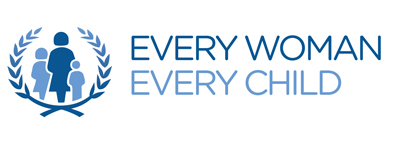Bangladesh to double the percentage of births attended by a skilled health worker
Description
2012—London Family Planning Summit
Bangladesh will increase access and use for poor people in urban and rural areas, improving choice and availability of Long Acting and Permanent Methods (LaPMs), including for men, and post-partum and post-abortion services. The government will work with the private sector and non-governmental organizations (NGOs) to: address the needs of young people, especially young couples; reduce regional disparities, working with leaders and communities to delay early marriage and child birth; and increase male involvement. One-third of Maternal Newborn and Child Health (MNCH) centers will provide adolescent Sexual and Reproductive Health and Rights (SRHR) services. Monitoring to ensure quality of care will be strengthened, including informed consent and choice, and to support women to continue use of family planning.
Through training midwives. upgrading district hospitals and Child Welfare Centres. Social mobilization, implementation of the minimum legal age for marriage, and upgrading one third of MNCH centres to provide adolescent friendly sexual and reproductive health services.
SDGS & Targets
Goal 5
Achieve gender equality and empower all women and girls
5.1
End all forms of discrimination against all women and girls everywhere
5.1.1
Whether or not legal frameworks are in place to promote, enforce and monitor equality and non‑discrimination on the basis of sex
5.2
5.2.1
Proportion of ever-partnered women and girls aged 15 years and older subjected to physical, sexual or psychological violence by a current or former intimate partner in the previous 12 months, by form of violence and by age
5.2.2
Proportion of women and girls aged 15 years and older subjected to sexual violence by persons other than an intimate partner in the previous 12 months, by age and place of occurrence
5.3
5.3.1
Proportion of women aged 20-24 years who were married or in a union before age 15 and before age 18
5.3.2
Proportion of girls and women aged 15-49 years who have undergone female genital mutilation/cutting, by age
5.4
Recognize and value unpaid care and domestic work through the provision of public services, infrastructure and social protection policies and the promotion of shared responsibility within the household and the family as nationally appropriate
5.4.1
Proportion of time spent on unpaid domestic and care work, by sex, age and location
5.5
Ensure women’s full and effective participation and equal opportunities for leadership at all levels of decision-making in political, economic and public life
5.5.1
Proportion of seats held by women in (a) national parliaments and (b) local governments
5.5.2
Proportion of women in managerial positions
5.6
Ensure universal access to sexual and reproductive health and reproductive rights as agreed in accordance with the Programme of Action of the International Conference on Population and Development and the Beijing Platform for Action and the outcome documents of their review conferences
5.6.1
Proportion of women aged 15-49 years who make their own informed decisions regarding sexual relations, contraceptive use and reproductive health care
5.6.2
Number of countries with laws and regulations that guarantee full and equal access to women and men aged 15 years and older to sexual and reproductive health care, information and education
5.a
Undertake reforms to give women equal rights to economic resources, as well as access to ownership and control over land and other forms of property, financial services, inheritance and natural resources, in accordance with national laws
5.a.1
(a) Proportion of total agricultural population with ownership or secure rights over agricultural land, by sex; and (b) share of women among owners or rights-bearers of agricultural land, by type of tenure
5.a.2
Proportion of countries where the legal framework (including customary law) guarantees women’s equal rights to land ownership and/or control
5.b
5.b.1
Proportion of individuals who own a mobile telephone, by sex
5.c
Adopt and strengthen sound policies and enforceable legislation for the promotion of gender equality and the empowerment of all women and girls at all levels
5.c.1
Proportion of countries with systems to track and make public allocations for gender equality and women’s empowerment
SDG 14 targets covered
Deliverables & Timeline
Resources mobilized
Partnership Progress
Feedback
Action Network


